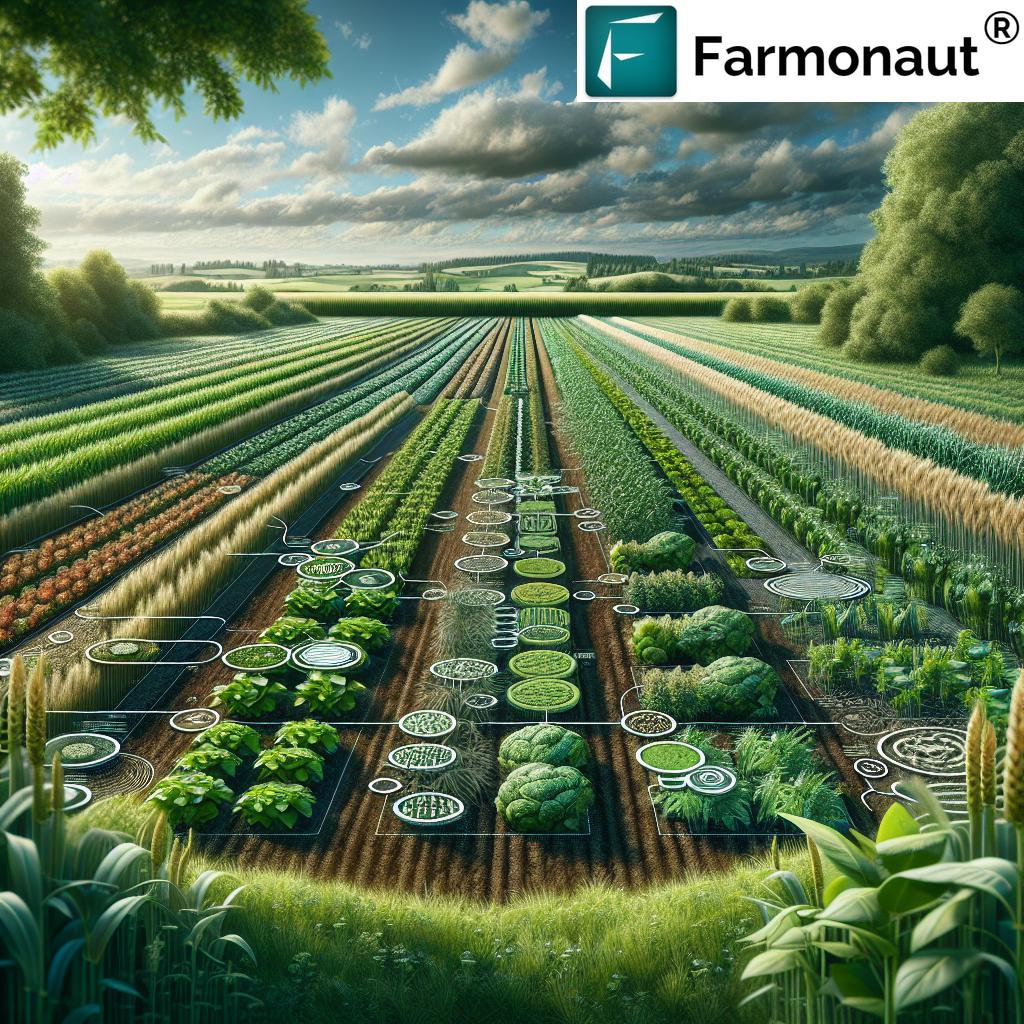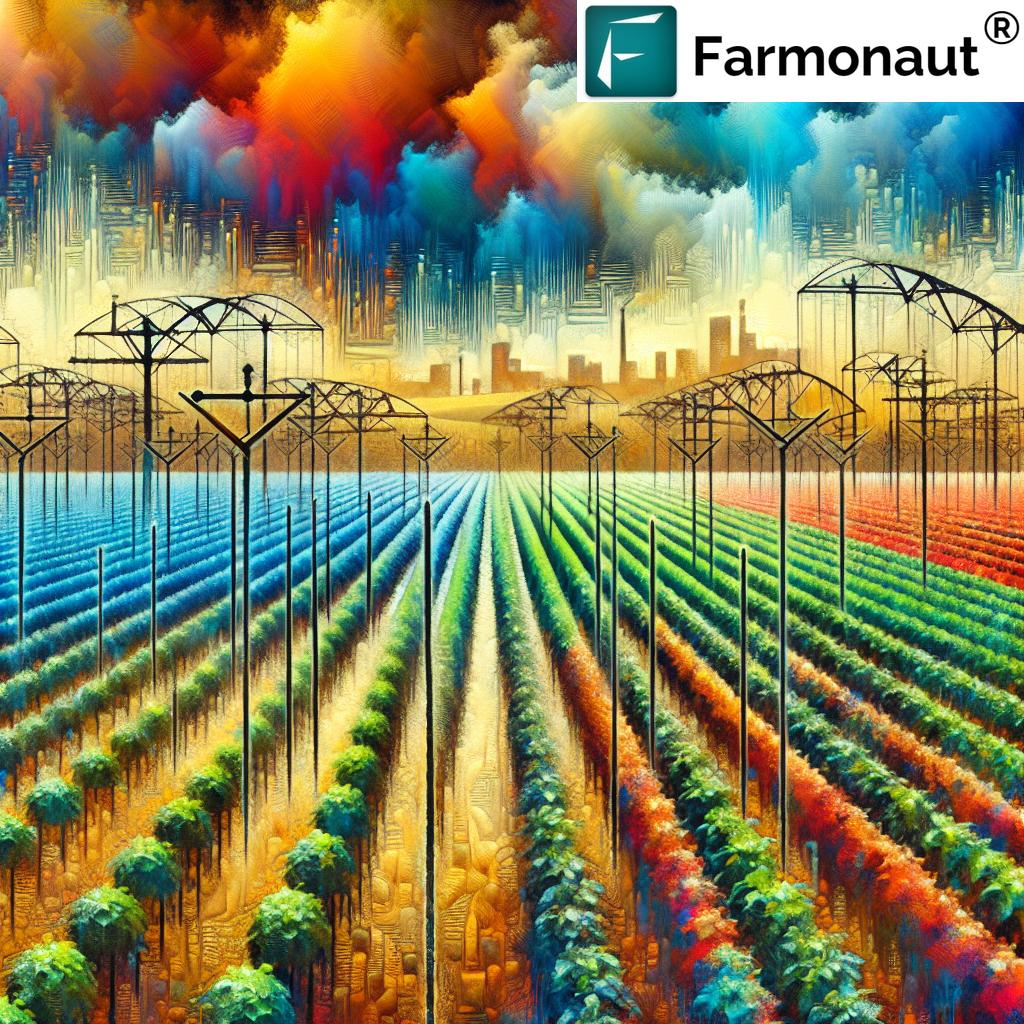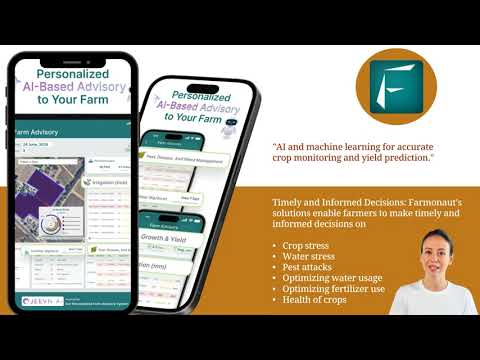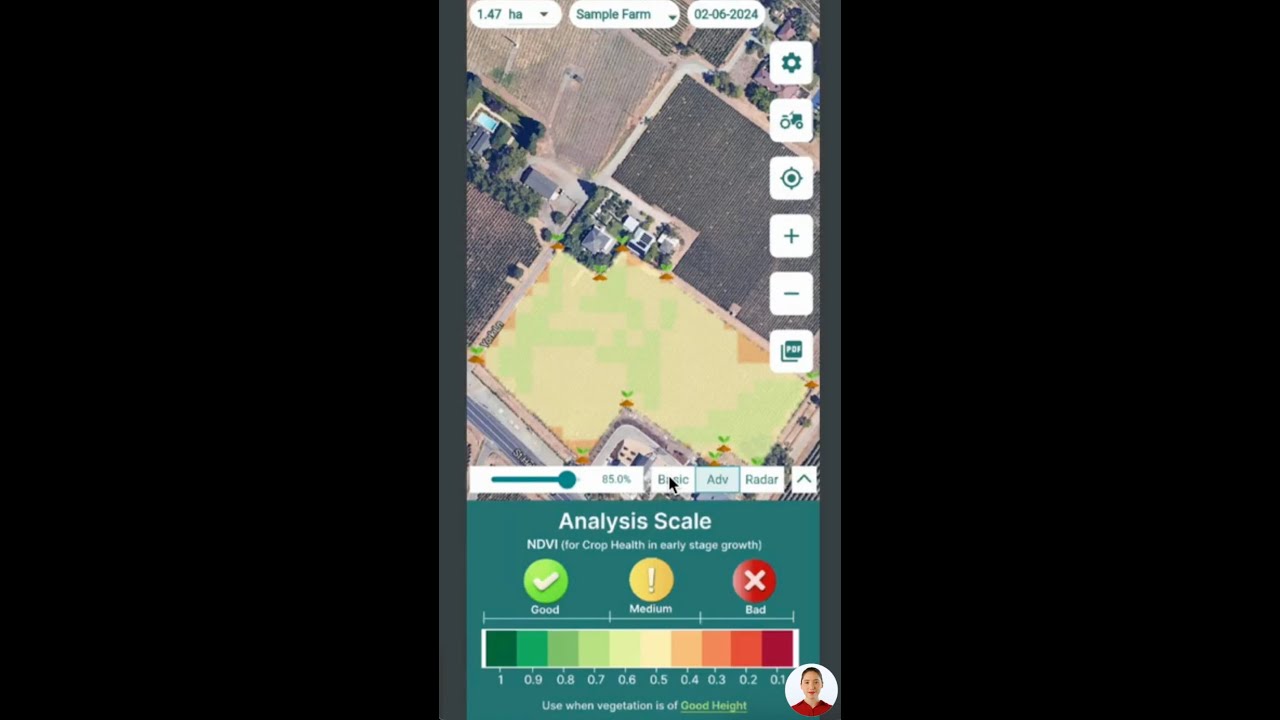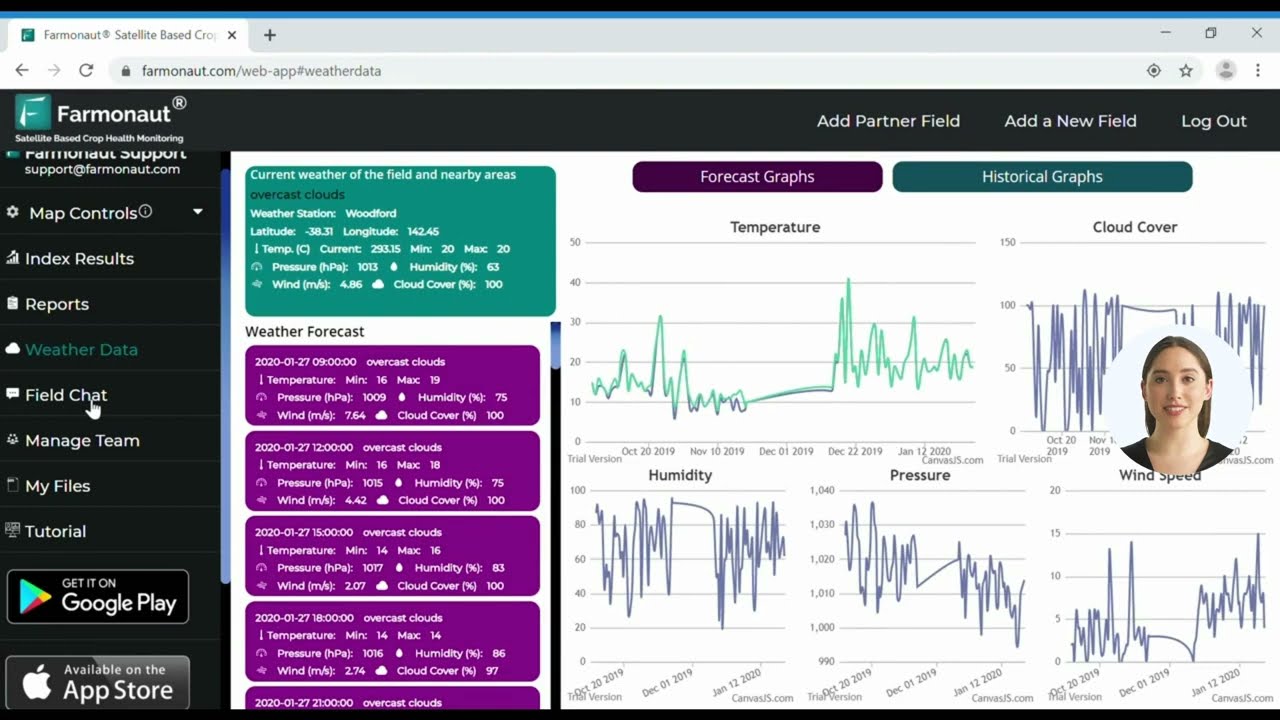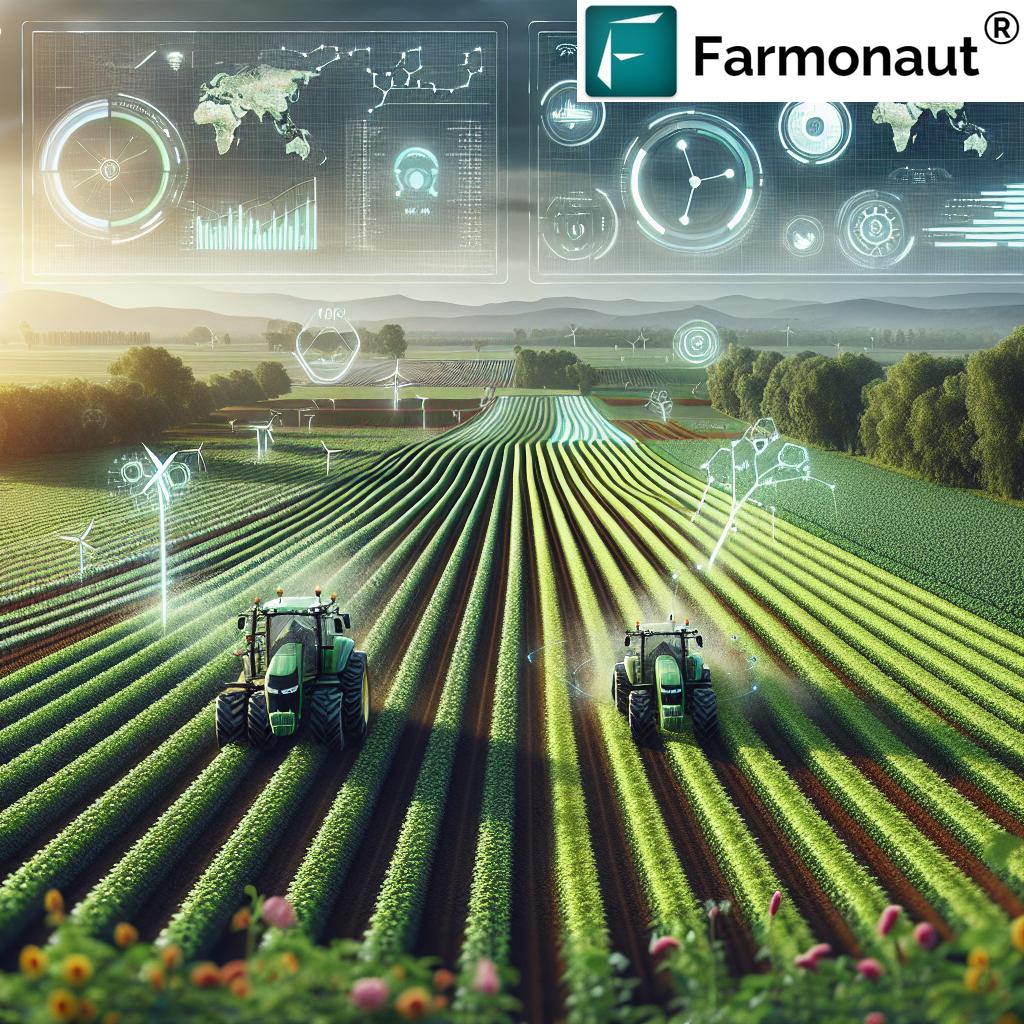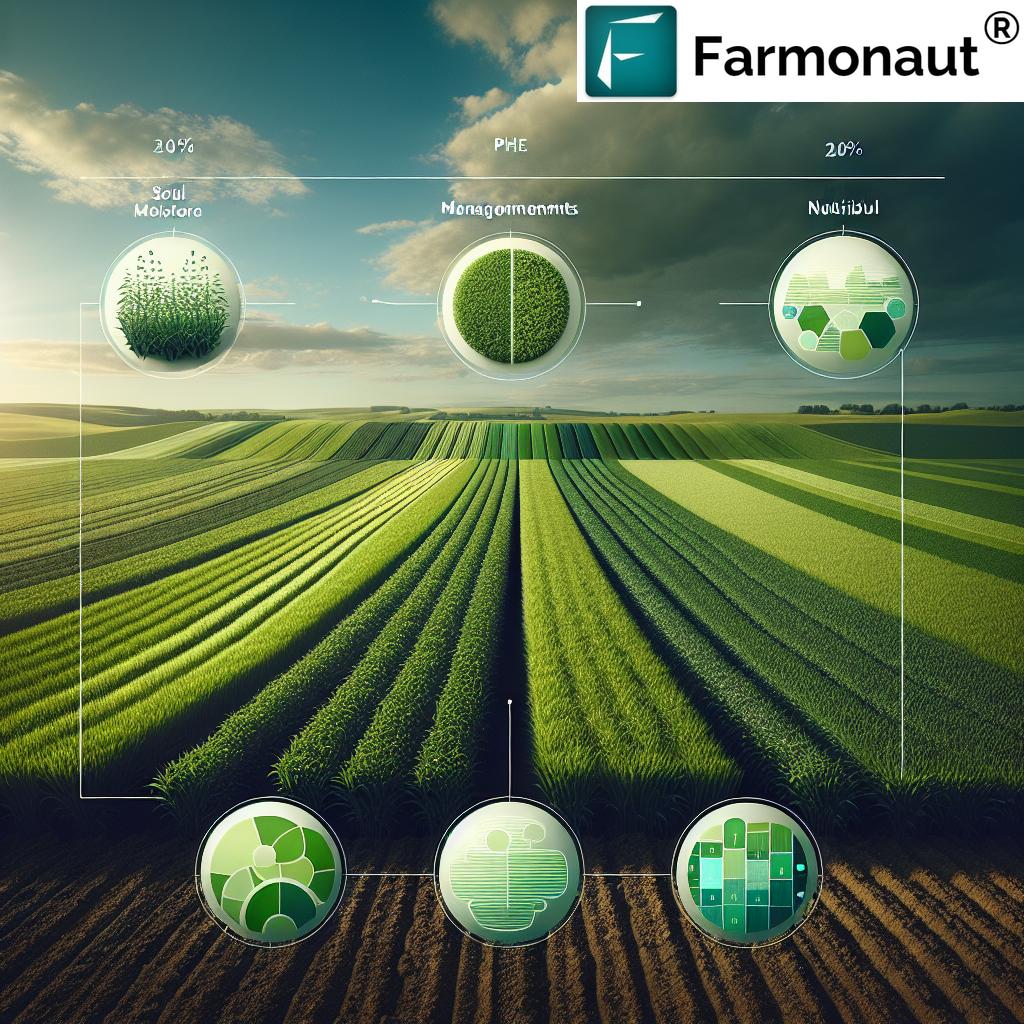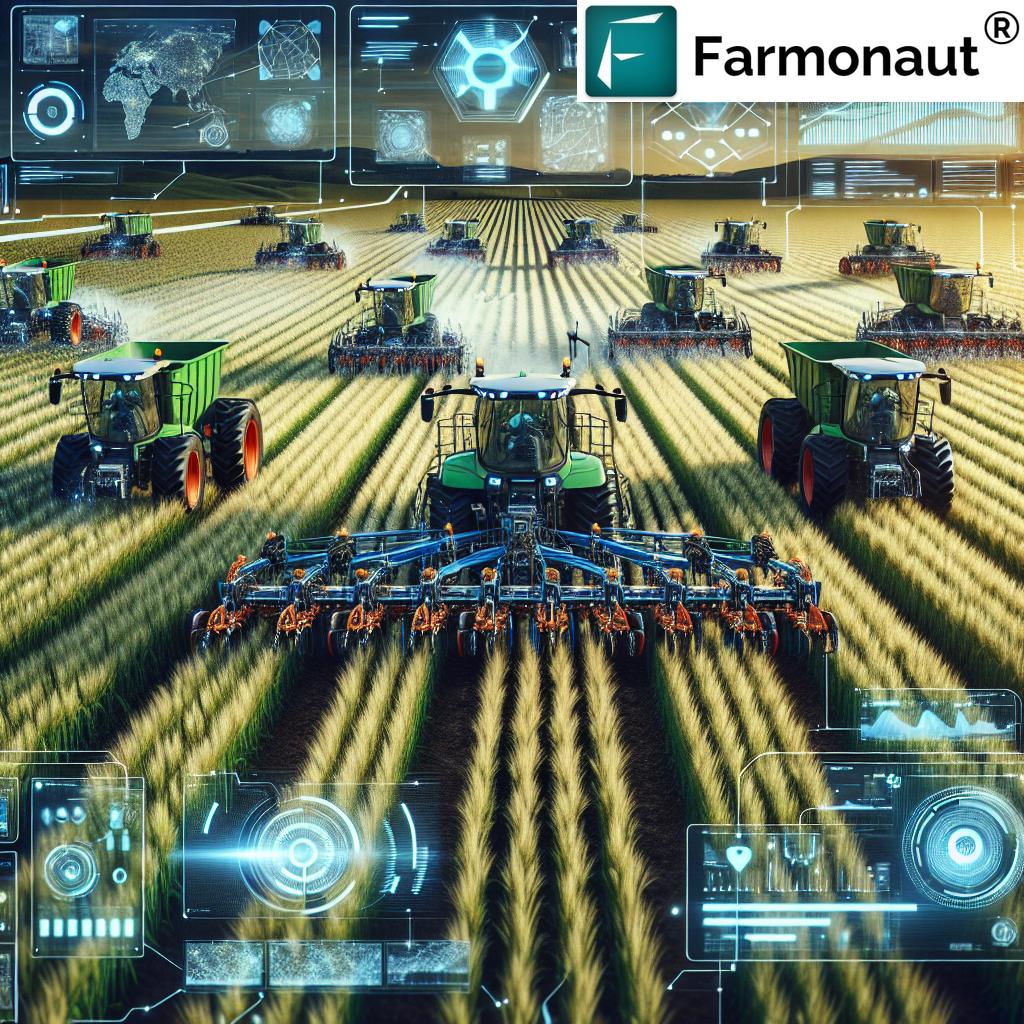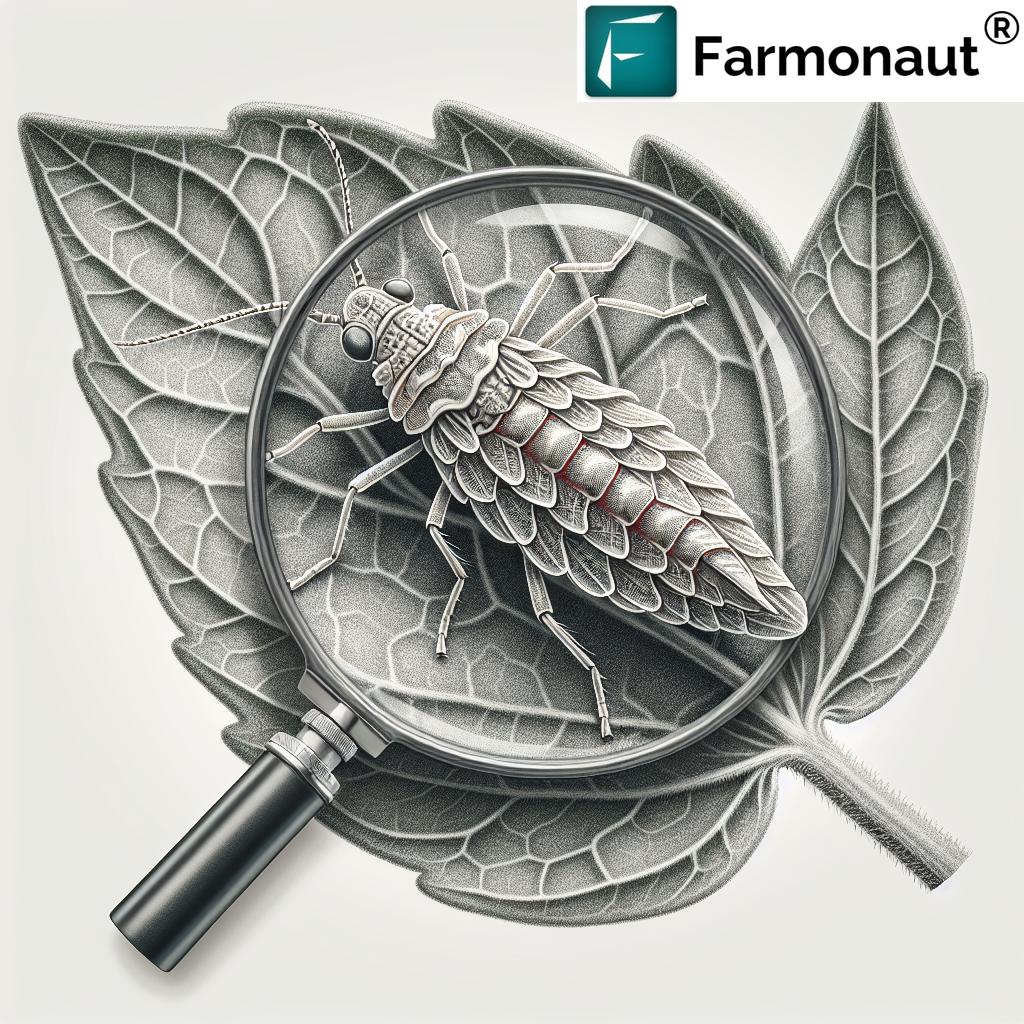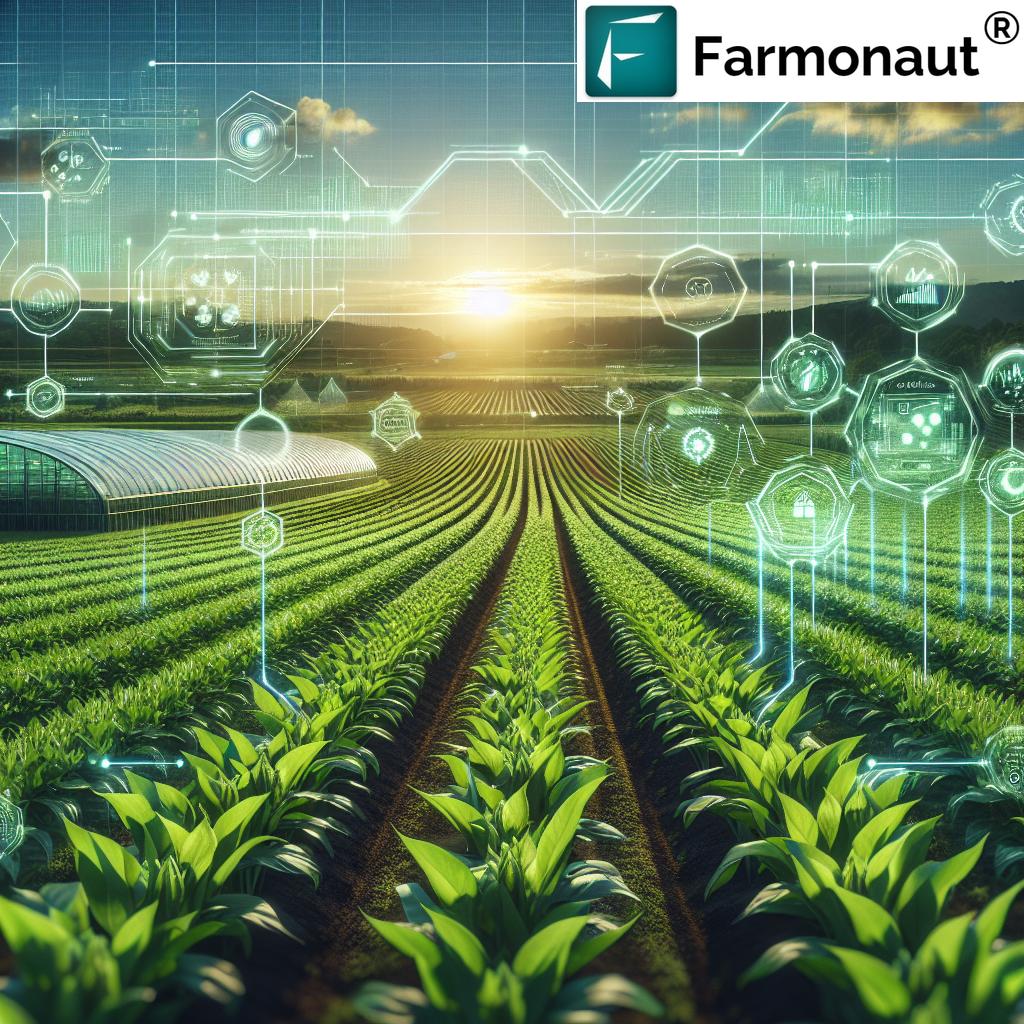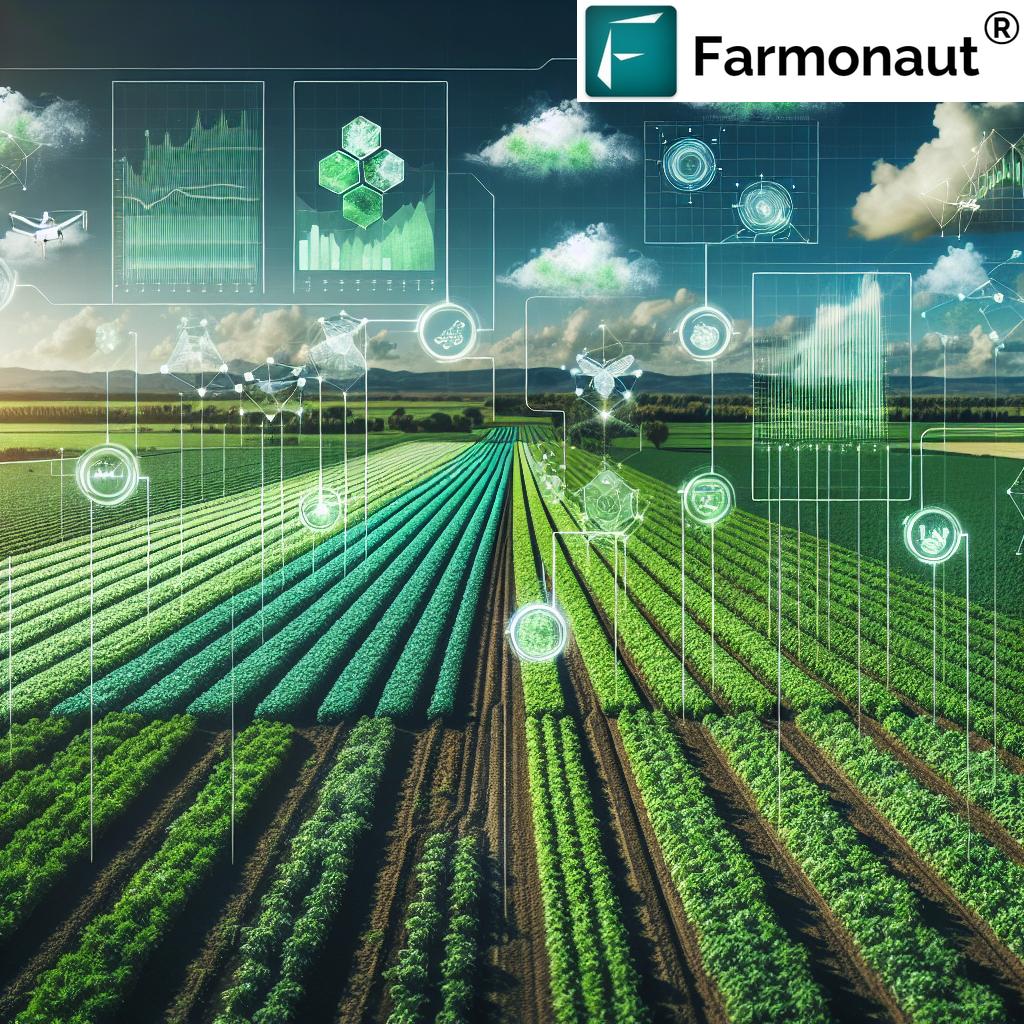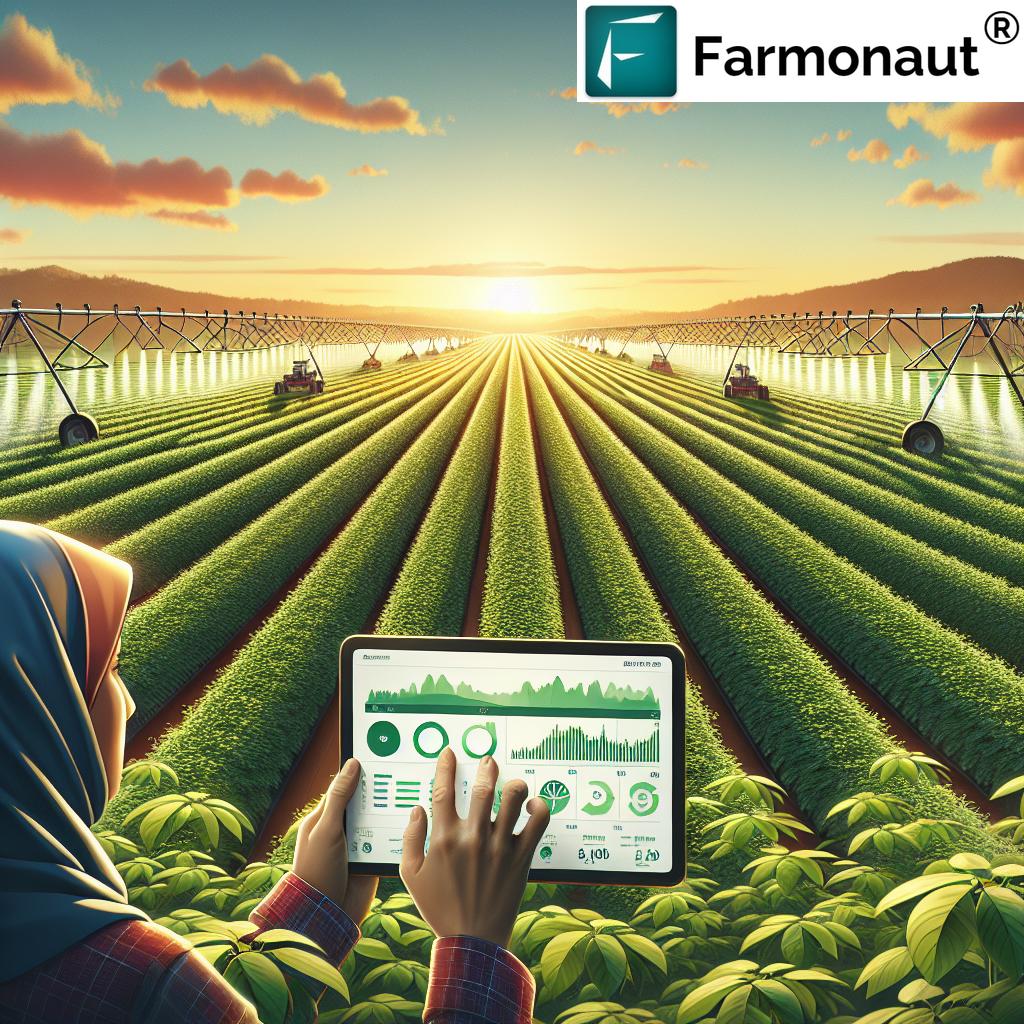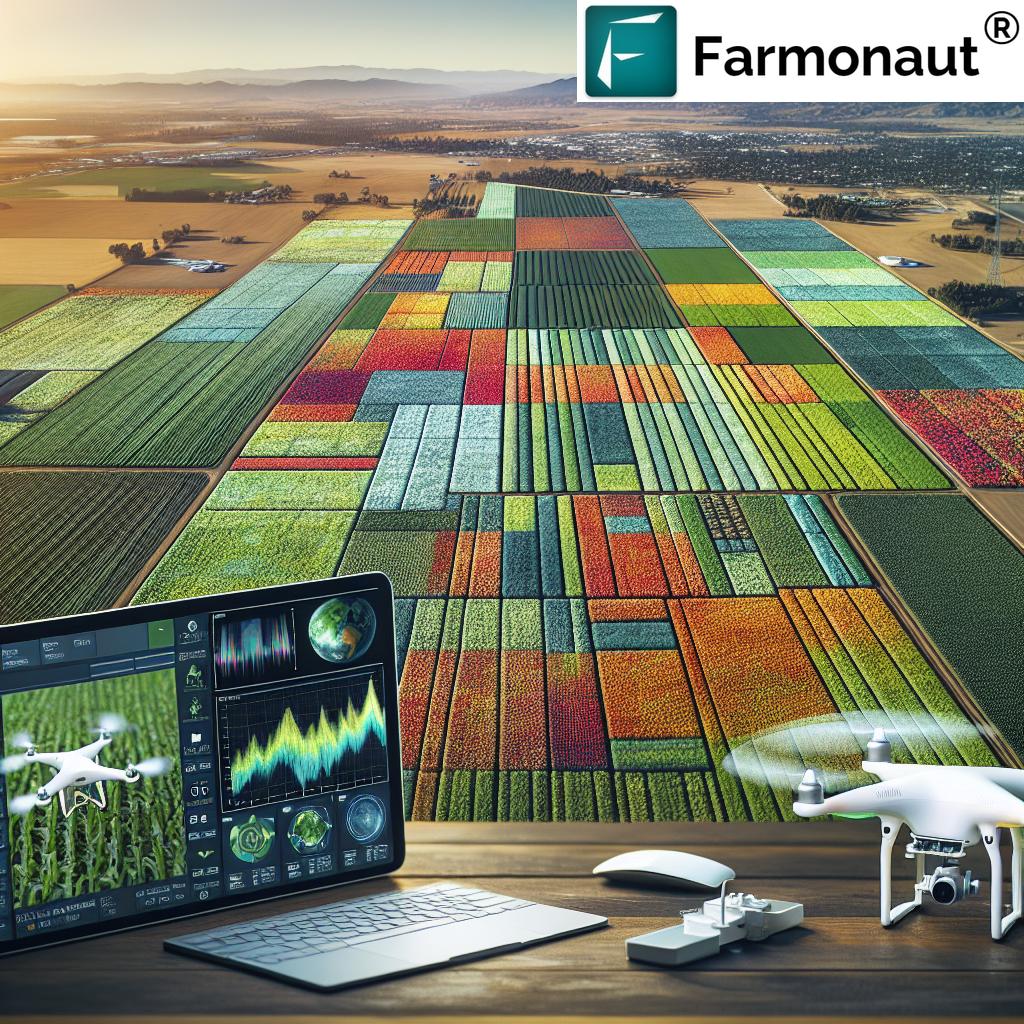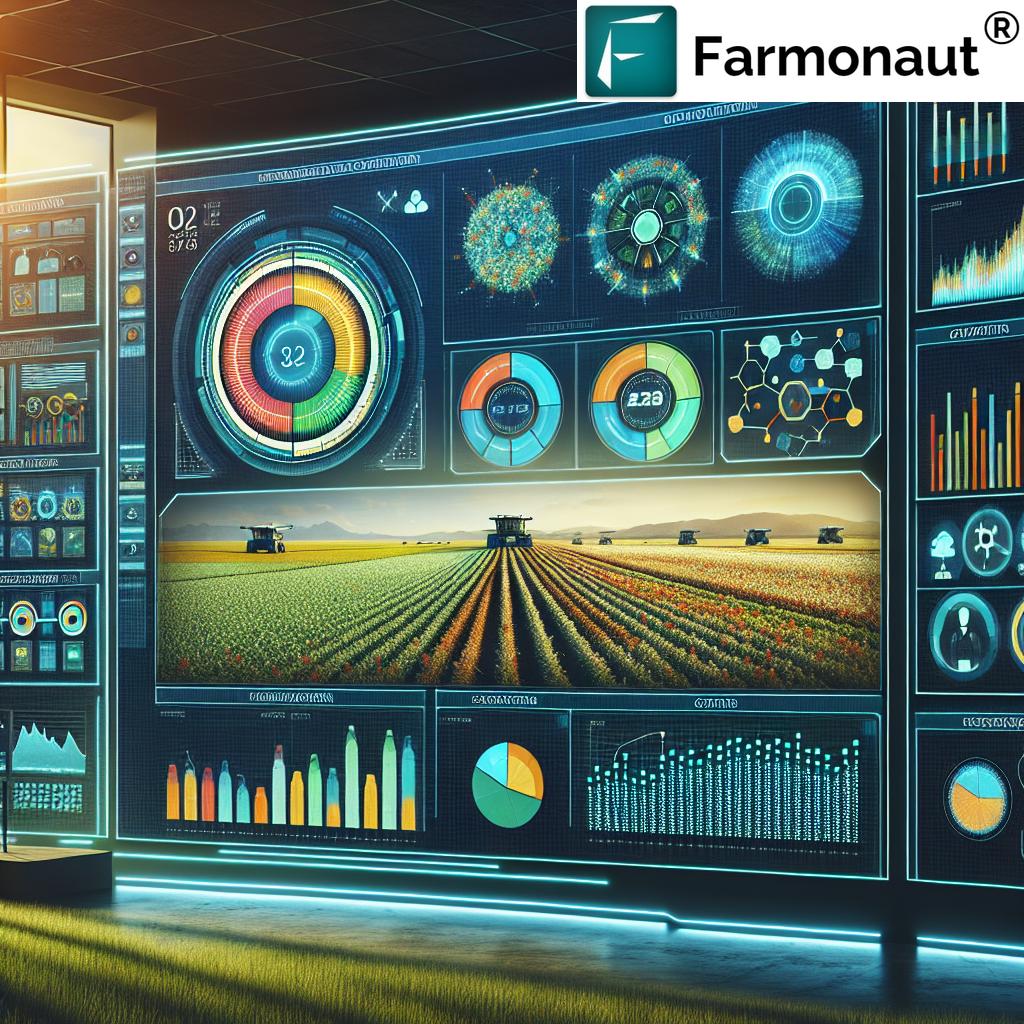Boost Crop Yields Fast: 7 Secret Farming Strategies
“Sustainable farming can increase crop yields by up to 79% in developing countries, improving food security and resilience.”
Introduction: Why Maximizing Crop Yields Matters
As we strive to boost crop yields amid evolving challenges, from climate change to resource limitations, understanding the key factors influencing crop productivity and adopting sustainable agricultural practices is more critical than ever. The quantity of harvested produce per unit area—our crop yield—serves as the benchmark for global food security and agricultural sustainability.
Increasing our yields is about more than just producing more food. It’s about the responsible use of our soils and waters, smart utilization of resources, minimizing waste, and protecting farm income for generations to come. This comprehensive guide will cover the main factors influencing crop yields, reveal our top 7 secret farming strategies, and show how new technology empowers us to grow smarter and more sustainably.
Throughout this post, we’ll also introduce you to Farmonaut, a global leader in precision agriculture and satellite-based farm management, and how their cost-effective solutions can transform your farming outcomes.
Key Factors Influencing Crop Productivity
To achieve optimal crop growth and maximize productivity, we need a clear understanding of the elements that both positively and negatively affect our yields. Here are the most crucial influencers:
-
Climate and Weather Conditions:
More frequent and severe extreme weather events (such as heatwaves, droughts, and floods) are now common due to the climate change impact on agriculture. According to a study in Nature, drought and extreme heat have historically reduced crop yields by up to 10%, with greater declines projected.
Reference: Time.com -
Soil Health and Fertility:
Healthy soil structure and nutrient content underpin high yields. Practices such as cover cropping, crop rotation, and agroforestry improve soil fertility management.
Reference: Soil Conservation -
Water Management:
Efficient water management in farming is vital—both scarcity and excess lead to yield losses. The adoption of precision irrigation systems minimizes waste and keeps crops healthy.
Reference: Precision Agriculture -
Pest and Disease Control:
Unchecked pests and diseases can decimate entire crops. Using integrated pest management strategies (IPM)—blending biological, cultural, and chemical tools—offers sustainable control. -
Agricultural Practices and Technology:
Adopting modern farming techniques, including the right selection of crop varieties, correct planting and harvesting methods, and technology data, is essential in enhancing productivity and sustainability.
“Adopting cover crops reduces soil erosion by 58%, directly boosting long-term agricultural productivity and environmental health.”
The 7 Secret Farming Strategies to Boost Crop Yields Fast
We have distilled years of experience, agricultural science, and agritech advancements into these 7 secret strategies. They are rooted in sustainable agricultural practices and proven to increase crop yields quickly—while protecting our planet and livelihoods.
-
1. Use Climate-Resilient Crop Varieties
With unpredictable weather due to ongoing climate change, we must develop and plant varieties specifically bred for challenging conditions. These include:
- Drought-resistant and heat-tolerant crops: Survive periods of water scarcity and high temperature
- Disease and pest-resistant varieties: Lower risk of total crop failure, reducing input costs and pesticide use
By integrating new varieties through local seed banks and research programs, we build resilience while increasing output and adapting to shifting climates.
-
2. Apply Soil Conservation Techniques
Success begins from the ground up. We can enhance soil fertility and structure by:
- No-Till or Reduced-Till Farming: Minimize soil disturbance, preserve organic matter, and reduce erosion
- Mulching: Retains soil moisture and cools the root zone
- Using Cover Crops: Legumes such as clover or vetch fix atmospheric nitrogen, replenishing soil nutrients and preventing erosion
- Agroforestry: Integrates trees, enhances biodiversity, and fosters a healthy agricultural ecosystem
Soil conservation maintains long-term productivity and is often supported by digital monitoring tools that track changes in structure and erosion over time—a feature available via Farmonaut’s large-scale farm management suite.
-
3. Implement Efficient Water Management in Farming
Water is life. Efficient water management directly impacts plant growth, quality, and final yields. Key strategies include:
- Drip or Precision Irrigation Systems: Deliver water directly to the plant’s roots, reducing loss from evaporation or runoff
- Rainwater Harvesting: Store rainfall for irrigation in dry periods
- Monitoring Soil Moisture: Use digital sensors and Farmonaut’s satellite-based crop health monitoring to avoid both underwatering and overwatering
These practices are essential in areas facing water scarcity, ensuring every drop counts in improving productivity while promoting sustainable resource use.
-
4. Employ Integrated Pest Management (IPM) Strategies
Pests and diseases are a leading cause of yield decline globally. Employing integrated pest management strategies combines:
- Biological controls: Natural predators and beneficial insects
- Cultural controls: Crop rotation and field sanitation
- Physical controls: Mechanical barriers, traps
- Chemical controls: Targeted pesticides, as a last resort
- Resistant crop varieties
Monitoring pest and disease risk is much easier with AI-driven advisory systems, like Farmonaut’s Jeevn AI Advisory—which provides real-time, field-specific alerts.
-
5. Leverage Modern Farming Techniques & Data
Data-driven modern farming techniques are revolutionizing our ability to maximize yields:
- Precision Agriculture: Guide every farm operation with satellite imagery and AI analytics (e.g., optimize fertilizer or pesticide application only where required)
- Variable Rate Technology: Adjust input application rates based on digital maps, avoiding waste
- Fleet and Resource Management: Plan machinery use to minimize downtime and input costs (fleet management tools reduce operational costs and inefficiencies for large and small farms)
By adopting precision farming tools, we enhance productivity, reduce costs, and reduce environmental impact.
-
6. Advance Resource Traceability and Transparency
In a global agri-value chain, tracking of produce from field to market is increasingly vital. This supports both food safety and sustainability claims:
- Blockchain-Based Traceability: Record every phase of production, harvest, and transportation with transparency. This is available via Farmonaut’s traceability solutions
- Secure Data Management: Reduce risk of fraud, streamline insurance, and improve trust
- Enable Compliance: Meet quality and environmental auditing standards
Traceability drives not only productivity (by reducing losses) but also supports food security and responsible marketing.
-
7. Educate, Empower & Support Farmers
Ultimately, increasing crop yields depends on people. Providing farmers:
- Access to ongoing education and support services for new farming methods
- Up-to-date advisory services on weather, pests, and optimal management timings (such as Farmonaut’s Jeevn AI)
- Financial tools such as satellite-based crop loan and insurance verification, reducing risks and improving access to credit
Empowerment through knowledge is the most sustainable strategy for long-term growth in farming.
Comparative Strategies Impact Table
To help you quickly compare the effectiveness of each secret strategy in boosting crop yields and sustainability, we’ve summarized the data below:
| Strategy Name | Estimated Yield Increase (%) | Sustainability Score (1-5) | Implementation Time (weeks) | Climate Adaptability Rating |
|---|---|---|---|---|
| Climate-Resilient Crop Varieties | 10-30 | 4.5 | 6-12* | High |
| Soil Conservation Techniques | 15-35 | 5 | 2-6 | High |
| Efficient Water Management | 20-50 | 5 | 3-8 | Very High |
| Integrated Pest Management (IPM) | 10-25 | 4.5 | 4-10 | High |
| Modern Farming Techniques & Data | 15-40 | 4 | 3-12 | High |
| Resource Traceability & Transparency | 5-12 | 4 | 2-8 | Moderate |
| Farmer Education & Support | 12-25 | 5 | 1-6 | Very High |
*Implementation for improved crop varieties reflects typical seed multiplication and adoption cycles; most other strategies can be adapted within a single season.
Smart Agricultural Management with Farmonaut
To unlock your farm’s full potential, we encourage the adoption of digital, satellite-powered management solutions that enable us to:
- Monitor crop health in real-time with multispectral satellite imagery
- Access personalized, AI-driven farm advice with Jeevn AI, delivering localized weather forecasts, crop health, and precise integrated pest management strategies
- Link resource inputs, yields, and sustainability metrics using blockchain (track and reduce your carbon footprint for environmental stewardship)
- Improve logistics and fleet usage for large-scale agribusinesses (see details)
- Seamlessly verify crop area/yields and support applications for loans or insurance with remote, satellite data (learn more)
-
Integrate Farmonaut APIs into your research, software, or institutional agriculture programs:
– Farmonaut API Information
– API Developer Documentation
Conclusion & Summary: Enhancing Crop Yields Sustainably
Achieving optimal crop yields is a complex but attainable goal that requires a comprehensive approach: blending sustainable agricultural techniques, adopting cutting-edge technology, and building climate-resilient farming systems.
The factors influencing crop productivity—climate change, soil fertility, water management, pest control, and technological adoption—are all interconnected. By thoughtfully implementing our 7 secret farming strategies, we not only improve the quantity and quality of harvested produce per unit area but also ensure we address global challenges of food security and environmental responsibility.
Whether you’re a smallholder seeking precise field-level insight or a large agribusiness scaling your operations, Farmonaut delivers practical, tailored solutions that make digital farming affordable and accessible worldwide. Our mission: to support your transition to higher productivity, greater resilience, and sustainable growth—today and tomorrow.
Frequently Asked Questions (FAQ)
What does “crop yield” mean?
Crop yield refers to the quantity of harvested produce per unit area, for example tons per hectare or bushels per acre. It’s a fundamental measure of farm productivity and food security.
Which factors most influence crop yields?
The most significant factors influencing crop yields include climate and weather conditions, soil fertility and health, water management, pest and disease control, and the adoption of modern farming techniques.
What is integrated pest management (IPM)?
Integrated pest management is a sustainable approach to pest control using a mix of biological, cultural, and, where necessary, chemical tools. The focus is on reducing chemical use, improving crop health, and maintaining ecological balance.
How does precision irrigation help increase yields?
Precision irrigation systems supply the right amount of water to each part of the field, reducing waste and ensuring crops get the water they need for optimal development—leading to higher yields and more efficient resource use.
How does Farmonaut help improve crop yields and sustainability?
Farmonaut offers advanced, satellite-based farm management platforms accessible via mobile, web, or API. These solutions enable real-time monitoring of crop health, AI-driven pest and water management, regulatory compliance, and sustainability mapping—all crucial for enhancing crop yields in today’s changing environment.
Where can I download the Farmonaut app?
You can download the Farmonaut app for Android and iOS, or use the web version.
Farmonaut Subscription Plans
Ready to supercharge your farm? Choose the plan that fits your needs and start benefiting from real-time crop health monitoring, AI advisory, and much more.


